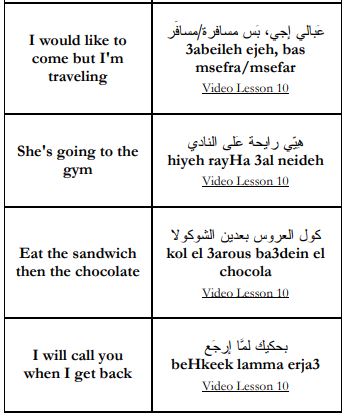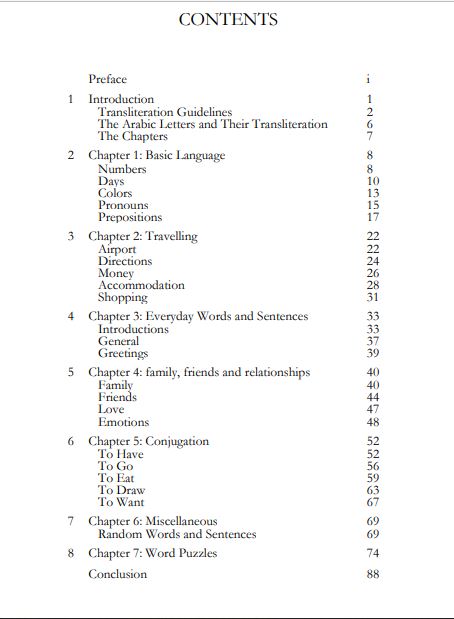Lebanese Arabic Phrasebook Vol. 1
In 2014 I had the idea of documenting everything that I taught in my videos. Thus the creation of the two volumes of the Lebanese Arabic Phrasebook. Two 100-page Lebanese Arabic books, contain almost all the words and sentences mentioned in my videos since 2011.
The main features of my Lebanese Arabic phrasebooks
Being almost pocket size, you could carry them with you whenever you travel to Lebanon. The chapters are divided in a way that makes it easy for you to search for the phrases you need when speaking to a local.
A very practical way to learn Lebanese
These phrasebooks will provide you with all the necessary and basic knowledge to make your stay in Beirut a smoother and enjoyable one. With them, you’ll be able to get by when talking with local speakers. They also offer you a practical and easy way of learning the dialect so that you can blend in seamlessly.
This method has proven to be very effective for students.
I have developed the methods and phrases used in this book since 2011. I have used my experience to teach Lebanese dialects through video lessons on Youtube and online Lebanese lessons. We then changed these methods to support development through student feedback. We focus on what is useful and effective for them.

Each phrase links you to a video so you can perfect your pronunciation.
Arabic is one of the most important languages in the world. It is spoken by over 300 million people. But Arabic has a special condition: its script and sounds are quite different from other languages.
The most important thing in learning a new language is listening to the native speakers who speak it. Moreover, this is very relevant to learning Lebanese. Especially since colloquial Arabic is literally “spoken” Arabic. So the advantage of this book is that every word and sentence used refers to the video where I teach it. Therefore, you can listen to it and try to master the pronunciation.
Translation and Transliteration
You will find translations of each phrase into Lebanese using two ways.
1. In the Arabic alphabet for those who are Arabic literate
2. Transliterated to the Latin alphabet for those who aren’t.
Exercises and Puzzles
Finally, there are exercises and puzzles at the end of the book, such as crossword puzzles and word searches, to help you master the material.
Lebanese Arabic Phrasebook Vol. 1 Chapters

There are seven chapters in the Lebanese Arabic phrasebook Vol.1. The first six define categories of the phrases taught throughout the chapters. I dedicated the last one to language exercises and puzzles.
The first chapter entitled “Basic Language” Contains five subcategories:
- Numbers
- Colors
- Days
- Pronouns
- Prepositions.
The second chapter, “Travelling”, offers sentences that you will need if you are traveling to Lebanon. The subcategories have a kind of chronological order:
- Airport
- Directions
- Money
- Accommodation
- Shopping.
The third, fourth, and fifth chapters contain everyday sentences as well as phrases to use around friends, family, and relationships. They also contain conjugations of a few verbs in the Lebanese Arabic dialect.
The sixth is the last chapter containing phrases. It will have a variety of random sentences, uncategorized. I chose these sentences either because students suggested them, or because I found them practical and fun.
The final chapter will consist of “fill in the blank” exercises, as well as crosswords and word search puzzles.


